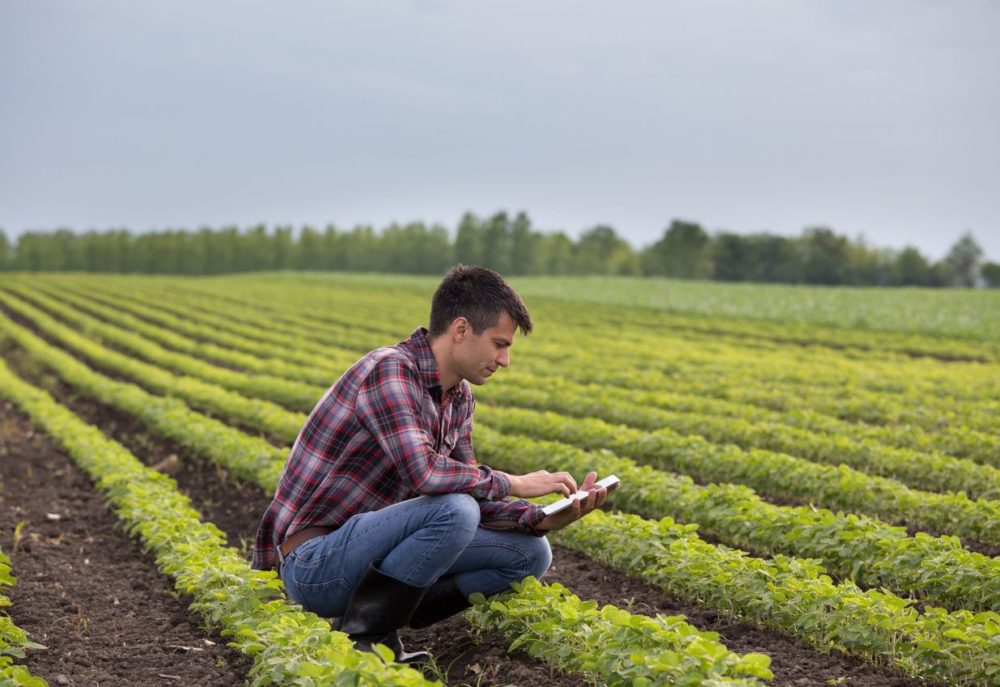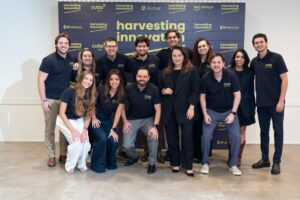Bayer and Microsoft have formalized the partnership they announced just over a year ago to create a cloud-based set of data tools and data science solutions for the food and agriculture industry.
The announcement comes in the same week that cloud competitor AWS launched a partnership with data infrastructure startup Leaf.
The Microsoft-Bayer collaboration has two parts:
- Azure Data Manager for Agriculture, which is a cloud infrastructure platform for companies and innovators to use to process and organize their agricultural datasets. It appears the Data Manager is an update to FarmBeats, an AI, IoT and Edge Computing project that’s been developing inside for Microsoft for some years but now incorporates Bayer’s “decades of agricultural expertise,” according to a press release. The data manager will “advance the industry through readymade capabilities and robust infrastructure that allow innovators to focus on differentiated value,” reads the release. Data Manager is also a marketplace of tools that users can license
- Bayer’s AgPowered Services is one such tool that can be licensed on Azure’s Data Manager for Agriculture. It provides datasets and algorithms to help growers and companies glean insights from satellite imagery about crop health. They can also calculate Growing Degree Days, “a critical input for models that focus on identifying key timing of variables affecting crop growth, health and output, as well as the emergence and development of important crop insect pests and diseases,” and water use maps.
The release states: “For example, companies that develop on-farm technologies can build on the new cloud infrastructure and core capabilities from Microsoft (Azure Data Manager for Agriculture) and license additional capabilities from Bayer (Bayer AgPowered Services) to build digital tools that support favorable agronomic outcomes for growers. Similarly, consumer goods companies can use the cloud offerings to build solutions that provide insight into nutrients, sustainability, and production practices to build trust with consumers, stakeholders and investors.”
The companies have released a preview of the tools and will follow with a full commercial launch “at a later date.”
Why it matters:
Gathering datasets in food and agriculture is not a core challenge facing the industry today, paricularly with the increasing prevalence of low-touch data-capturing tools like satellite imagery; there are stories of farmers with thumb drive after thumb drive of historical data not knowing what to do with it. The core issue is using those datasets in a way that provides useful and actionable insights to farmers. One major bottleneck has been ensuring datasets are interoperable and not siloed, or rather consistent with one another so that they can be combined to draw broader and more accurate insights.
For example, the data coming off a tractor looks very different from the data coming from a soil sensor. Equally, the data coming from a tractor manufactured by X company looks different from the data from tractor company Y. And when you move down the supply chain, datasets invariably look very different too. As large consumer goods companies increasingly look to measure the impact of their operations on the environment, provide transparency to their customers and ensure food safety, being able to analyze datasets about the journey of their core ingredients all the way from the farm is increasingly important.
To-date, many agtech startups have tried to do this data processing and organization in-house, which costs a lot of money and means they have spent a significant amount of time on that instead of building useable and useful products for farmers.
“A cloud platform like Azure to partner with a data platform like Bayer’s Climate could potentially do all the leg work for customers or downstream analytics companies and save a lot of the hassles of engineering, but, more importantly, save them huge costs,” Will Wells, founder of Hummingbird Technologies, told AFN in 2021, at the time of the initial announcement.
Initiatives such as AgGateway have tried to standardize how data-capturing technologies organize their datasets but with limited success, according to G. Bailey Stockdale, CEO of Leaf. That’s why he built the Leaf API to be the middleman between data-capturing technologies and data analysis software and other data-using tools.
Alphabet is also getting in on the game, recently spinning out Mineral, which also aims to advance data capabilities for innovators and supply chain companies.
It appears that Microsoft and Bayer are trying to do something similar to these efforts with the data manager, but the exact differences with Leaf and Mineral are unclear. It’s also worth mentioning that Bayer’s digital platform Climate is a client of Leaf. Leaf is now available on AWS marketplace and will be incorporated into AWS’s agriculture offering as it sells to agriculture clients.
The partnership with Microsoft is also part of Bayer’s goal to reach 100% digital sales in its Crop Science division by 2030, according to the press release.
Questions from readers
Who are the customers?





